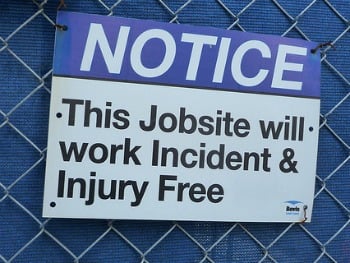 JODI MATHY
JODI MATHY
Senior Claims Consultant
Employers will face runaway work comp costs if Wisconsin lawmakers adopt proposed legislation. Tentative changes to the Wisconsin work comp law would require that employers of injured employees continue to offer group health coverage for the duration of the employee's healing period. According to the proposed law, this group health coverage expense would not be paid for by the employer’s work comp insurance, but instead it would come directly out of the employer’s pocket.
How the Rulemaking Process Works
There's a lot behind this proposed law, and it starts with the group tasked with improving Wisconsin work comp regulations. The Worker’s Compensation Advisory Council (WCAC) was created to advise the Department of Workforce Development and the Legislature on policy matters concerning the development and administration of the worker’s compensation law.
Through the WCAC, both labor and management representatives play a direct role in recommending changes to the worker’s compensation law to the Legislature. One of the most important roles of the WCAC is to maintain stability of the worker’s compensation system without regard to partisan changes in the legislative or executive branches of Wisconsin government.
In a nutshell, the two components of the WCAC, labor and management, negotiate between each other on work comp issues. Once they have alignment on where Wisconsin work comp should go, they present a final bill to the Wisconsin Legislature. This is called the Agreed Bill process.
What the Proposed Wisconsin Work Comp Law Means for Employers
Management representatives have been trying desperately to introduce a medical fee schedule into the current work comp system to help control rising medical costs. Those medical costs increase the amount paid on all worker’s compensation claims. In turn, this affects experience modification ratings and ultimately worker’s compensation premiums.
This was a goal for management during the current Agreed Bill process, and they succeeded. However, the trade-off for that medical fee schedule will have much worse implications for employers.
Within the items that found their way into the bill is a proposed change that employers simply can’t accept. Part of the bill that will go to the Legislature for approval includes a completely new requirement under the worker’s compensation law.
That new requirement is continuation of health care coverage. The draft language being kicked around states:
“If at the time of injury the employer of an injured employee is providing the injured employee with group health care coverage, the employer shall maintain that coverage during the injured employee’s period of temporary disability at the level and under the conditions that the employer would have provided coverage if the injured employee had continued in employment continuously during that period of temporary disability, without regard to the injured employee's employment status during that period."
Currently, employers are required to be compliant with state and federal leave laws, which protect an employee’s group health benefits for a finite time under a qualifying leave. Once that leave is exhausted or employment is terminated, the employer offers COBRA. COBRA gives workers and their families the right to choose to continue their group health benefits for limited periods of time under certain circumstances such as job loss, reduction in hours, transition between jobs, and other life events. Under COBRA, those employees may be required to pay the entire premium for that continued coverage.
The proposed work comp change says that employers are required to continue group health care coverage at the the level and under the conditions as at the time of injury, with no limit until an employee reaches an end of healing from her work-related injury. Additionally, an employer's responsibility under the proposed law does not change even if the employer fired or laid off the injured worker.
Here's the part that employers should be afraid of: This cost to continue the employee’s group health benefits will not be paid for by the employer’s worker's compensation insurance — it will come directly out of the employer’s pocket. Your employee could have a three-month period of disability or a 24-month period of disability. The financial implication is staggering! In addition, there are proposed penalties for not complying with this part of the work comp law.
Tell Your Legislators to Kill the Bill
Can your business afford this change to the work comp law? What's more, Wisconsin lawmakers talk about attracting businesses to the state, but this proposed legislation is sure-fire business repellant!
What can you do to stop this proposed change to work comp? The first step is getting informed about the proposed change and its implications. All business owners should contact their elected representatives and the governor to share their opposition to the work comp change. Tell your lawmakers that the bill must be sent back to the WCAC for revision. Here are some resources for contacting your state legislators:
Wisconsin State Legislature: Who Are My Legislators?
Wisconsin Office of the Governor Contact Page
Related Posts:
Expect Big Impact on Work Comp from Obesity Classification
How Employers Can Break Through Work Comp Claim Dysfunction
How to Avoid MSA Traps in Work Comp Settlements
The Ins and Outs of Fitness for Duty Exams
.png?width=69&height=53&name=Acrisure%20Logo%20(White%20Horizontal).png)

 JODI
JODI ![[WATCH THE WEBINAR] Don't Hire That Claim: Using Post-Offer Physicals & Capabilities Testing to Control Costs](https://no-cache.hubspot.com/cta/default/38664/b36354d8-9d1a-4a21-bd41-d0a27e2e3aac.png)
